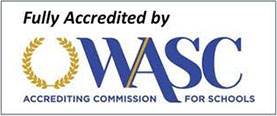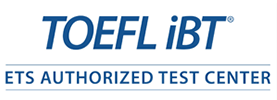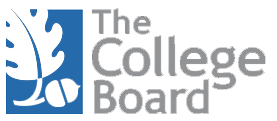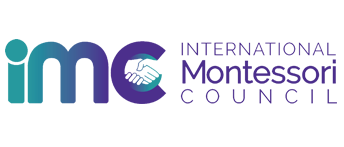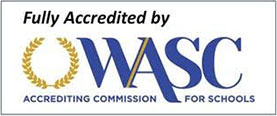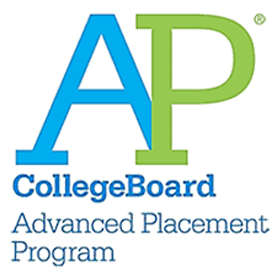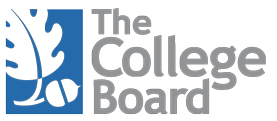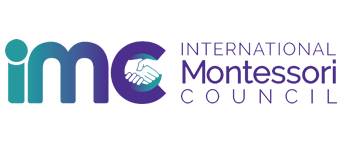Our ideal candidate has the following qualifications: ---------------------------------------------------------------- In general, we are looking for professional teachers - teachers who know how to prepare lessons, how to follow an established curriculum, how to dress professionally, how to manage a classroom, how to conduct themselves appropriately both inside and outside of the classroom, and how to work effectively with parents, coworkers, and administrators. ---------------------------------------------------------------- Regarding behavior outside of school, teachers at AIS are held to a higher standard, and their behavior plays a great role in determining the parents' level of trust and respect for the teachers. Thus, teachers at AIS are more carefully scrutinized here than in other communities. The "best fit" for our community would be a teacher who has a healthy lifestyle, who focuses on his/her students throughout the school week, and who behaves moderately and respectfully in the community outside the school.
The duties of our teachers include, but are not limited to, the following:
Salaries are based on academic degree(s) and relevant experience. Each salary decision represents a private contract between the teacher and Ayeyarwaddy International School. Salary payments are made in USD on the last day of each month. The school pays the local tax on foreign salaries; the amount is not deducted from a teacher's pay. All teachers receive free housing at the school in one-bedroom apartments with basic furnishings (bed & bedding, dresser, kitchen set, and basic kitchen equipment). Couples have multi-room apartments. The school will provide teachers with the necessary documentation in order to secure an initial Business Visa. We will pay the cost of the initial visa in full (if processed at Mandalay International Airport upon arrival) or in part (up to $50 reimbursement, if processed elsewhere). We will also pay for the costs associated with renewing visas and securing a Foreign Resident Certificate. Teachers are entitled to paid sick leave (5 days per semester) and personal leave (1.5 days per semester). Teachers must provide proper documentation and (aside from emergencies) advance notice to qualify for sick leave. All requests for personal days must be submitted at least one week in advance. Teachers will have off all national holidays (based on holidays recognized and celebrated in Myanmar). All teachers have myriad opportunities to connect with the local community, to learn about Myanmar, and to make a difference in the lives of those around them.
We welcome couples, provided that each person meets the teacher requirements that are outlined above. Yes, we provide health insurance. Whether or not you have insurance, Myanmar is not a place for those in poor health. If you have any doubts about the state of your own health, you should probably consider teaching in another country. Ayeyarwaddy International School is the first full academy in the region to be based on an American curriculum model. Our school, which is fully accredited by the Western Association of Schools & Colleges (WASC), offers classes from preschool to high school. Our student population includes both Myanmar students and a large number of students who are ethnically Chinese but who reside permanently in Mandalay. In addition, we have a small international population. English is the language of instruction, and the goal is to have graduates who are proficient in English and who are academically prepared to attend a university in the United States or in any English-speaking country. Mandalay is a city of about a million inhabitants. You will find modern conveniences in the main town and plenty of rural beauty just outside of the city proper. The pace of life is slow by Western standards: people take time to stop and talk with one another. The local people will smile at you and take time to welcome you to their community. As noted above, the local culture is restrictive by Western-standards, and teachers are held to a higher standard of behavior. If nightlife until after midnight is important to you, then you should consider another setting.
We have high-speed wireless internet throughout AIS campus. Students can get limited access to wifi with a code in the libraries and secondary classrooms. When there are power outages, there is some limited usage of technology in the classroom. Each classroom has a SMART Board, a projector, and a desktop computer. For times when the Internet/power is down, we have generators that keep the power running. If the generator fails, we also have whiteboards and markers in each classroom. It is important for teachers to be prepared to teach with and without power (i.e., have a backup plan if power is down and you cannot use the projector in the classroom). Each apartment is equipped with its own wifi device.
Transportation has improved greatly over the past few years. It is relatively cheap and easy. You can get around the city by bicycle, motorbike, tuk tuk, or taxi. The city center is about 10-15 minutes from the school. Many teachers choose to purchase a motorbike. The law requires the use of helmets, and foreigners must have a valid Myanmar driver's license to drive. The school will help you obtain your license. A motorbike will come in handy if you want to explore the nearby mountains, caves, and waterfalls. Transportation is interesting. You'll see vehicles with the steering wheel on the left or on the right. While most cars have a steering wheel on the right (as in England), drivers drive on the same side of the road as in America (which makes left turns challenging). The school provides transportation to the shopping center twice a week.
In the past, teachers had to wire money to their home from Thailand or Cambodia; however, now teachers can wire money directly from Mandalay.
Mandalay is NOT a malaria area. For answers to most health issues related to the region, please visit this website:
The city does have western-style grocery stores and distributors where you can find specialty cooking items; however, the local market has the best selection of fresh fruits and vegetables. If you are craving western food, there are hundreds of locally-owned restaurants. There are very few fast-food options. For delivery options you can check out Mandalay Door 2 Door or Food Panda Mandalay to get an idea of what is available. There are a number of stores and shopping malls where you can find goods, but some things are not easily available in Myanmar. For hard to find products, many teachers use the Myanmar equivalent to Amazon called Shop Myanmar. Check out the "What Should I Bring to Myanmar?" section to see what teachers recommend you should bring.
Breakfast: Myanmar breakfasts are very popular with the foreign staff. Breakfasts are usually soup, noodles, sweet bread with beans and sweet milk tea. The most popular dishes are Mohinga (the national dish of Myanmar), Ohn-No Kyawkswe, Shan Khyawkswe, and Ei Kyar Kway. Lunch/Dinner: Lunch and dinner consist of soup, rice, vegetable/salad and meat. In general, Myanmar food is not spicy but chili pepper flakes are available as a side dish. School lunch is provided for teachers in the canteen Monday-Saturday. Many teachers frequent Chinese BBQs. They are outdoor restaurants that serve fresh grilled meats and vegetables. Snacks: lah pet thoke, ar pu shar pu, bao si bun, skwe kyi sa nwinn The flavors in dishes vary from state to state. Be sure to try local cuisine as much as possible! Chinese BBQ restaurants are a favorite.
Most items are available in Myanmar, but here is a list of things that teachers suggest you bring with you. Personal items: approximately $500 for your first month (unless you want to buy a motorbike when you arrive) quality bras/underwear stick deodorant sturdy sandals running shoes people that wear a women’s size 40 (8.5) or men’s 45 (12) should bring shoes favorite spices tampons/diva cup unlocked phone top sheet(s) swimming suit E-reader climbing gear Sunscreen favorite candy stash *You can get MOST clothes here, but they may not be the quality you want or expect. Bring favorites. School Items: pocket charts Mr. Sketch markers brass brads book rings expo markers (all the colors) doc cam (if you don't know how to do it with your smartphone cool stickers decoration pack
Regarding flights, if you intend to get a visa on arrival (available to persons from the USA, Canada, the UK, and a few dozen other countries), then you can fly directly to Mandalay, which most teachers reach via Bangkok. Currently, if you do an online search for flights from your country directly to Mandalay, you will find incredibly high rates (thousands of dollars). This is because many of the new Bangkok-Mandalay flights are not yet included in the major online search engines. You might find more realistic prices by buying two tickets: one to Bangkok from your usual online flight resource and then a separate one from Bangkok to Mandalay purchased directly from Air Asia or Bangkok Airways. Regarding luggage, if you have anything more than one normal-sized suitcase, most international carriers will charge a fee. Please check with the airline's website to learn about any additional costs.
http://www.mdtravelhealth.com/destinations/asia/myanmar.php.

No.25(B), 52nd St, Between 33rd and 34th St, Chan Aye Tharzan Township, Mandalay.
Phone: +959 265459667,
+959 968968812
Email: mark.pleasants@ais.edu.mm,
Website: www.ais.edu.mm

